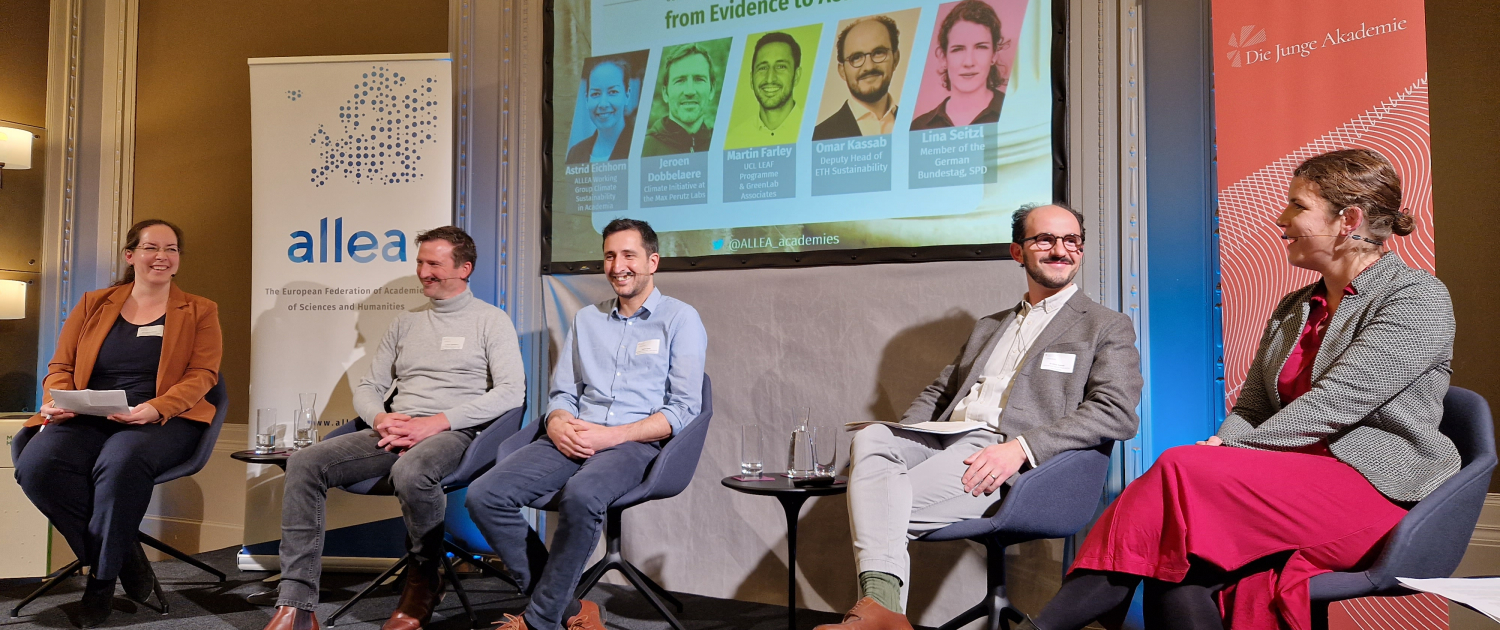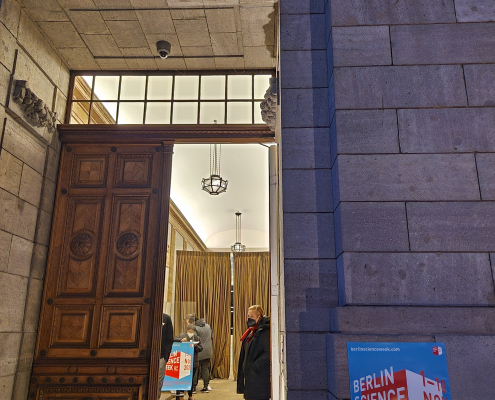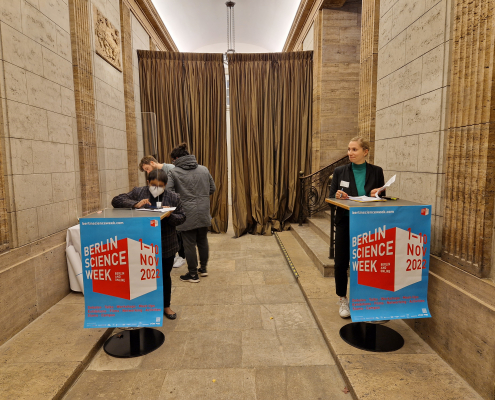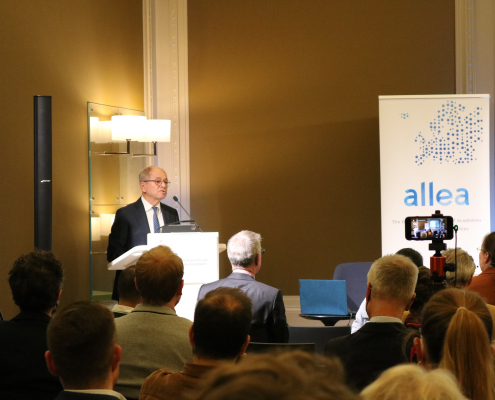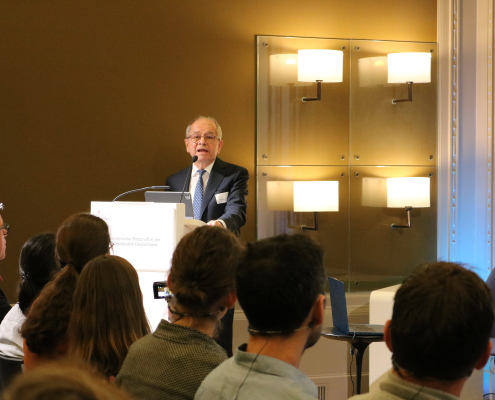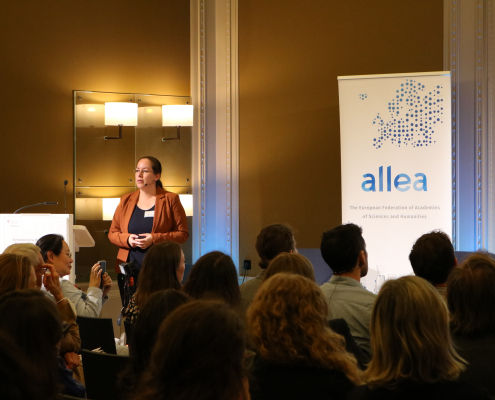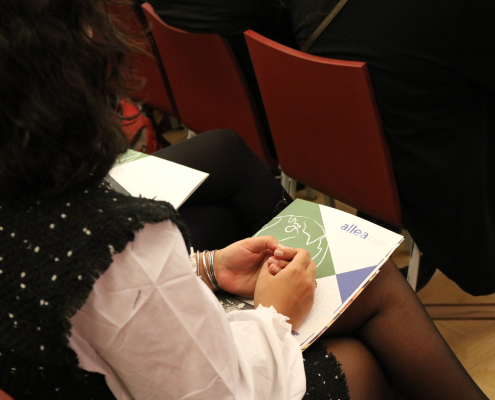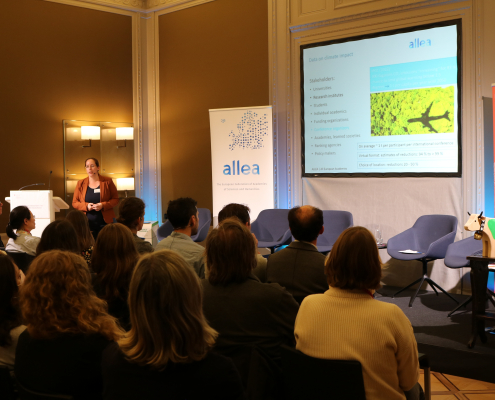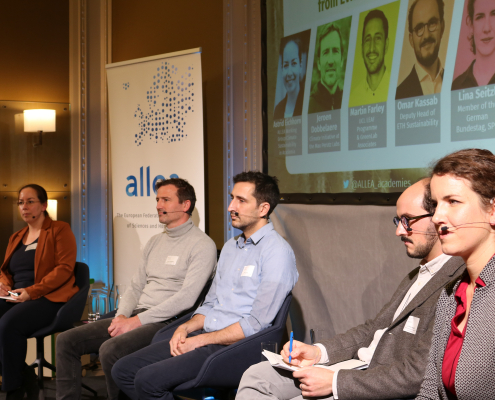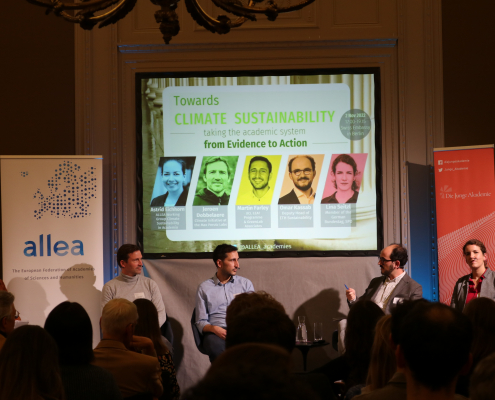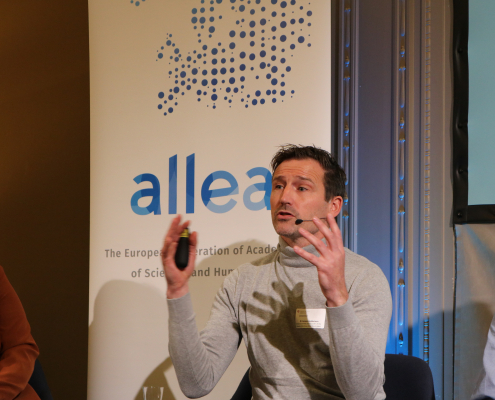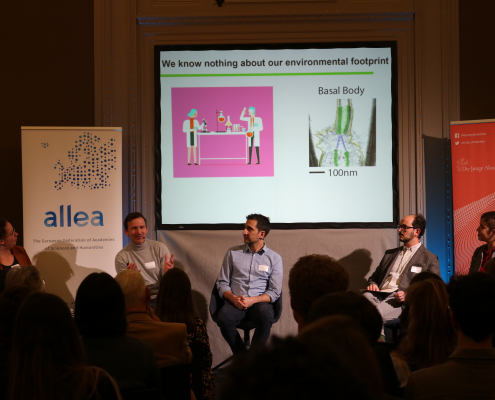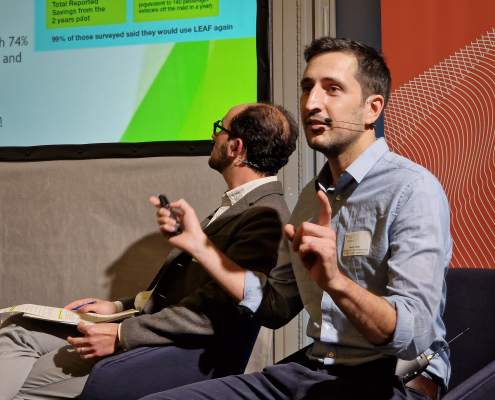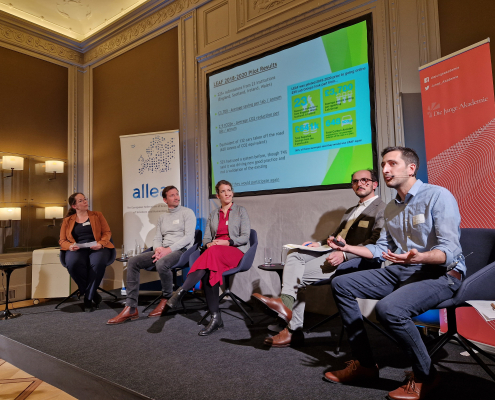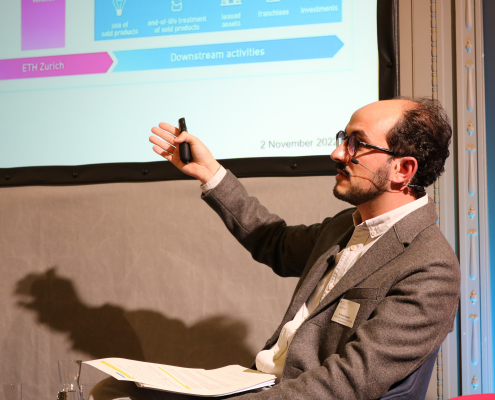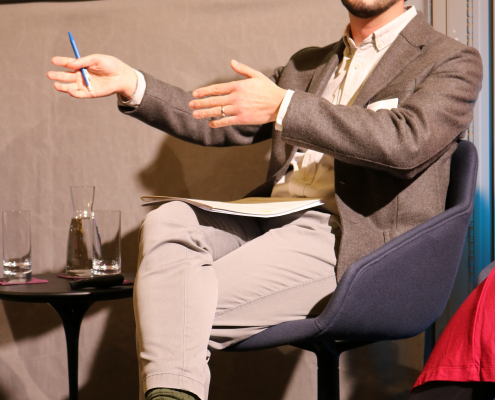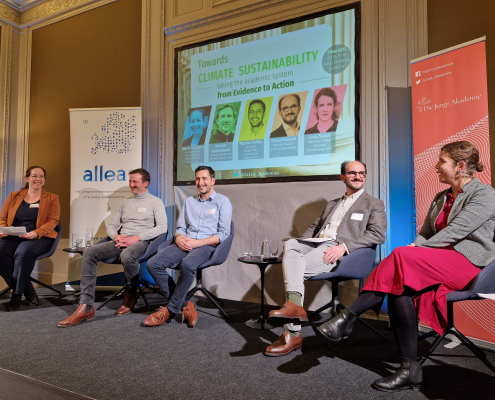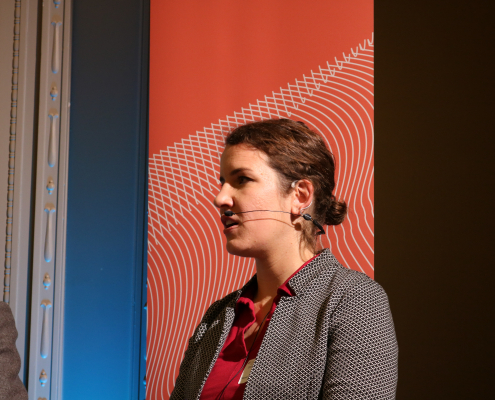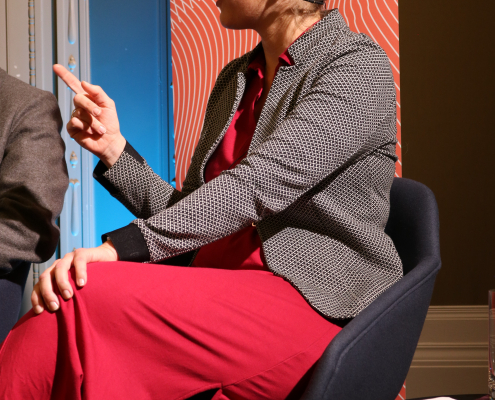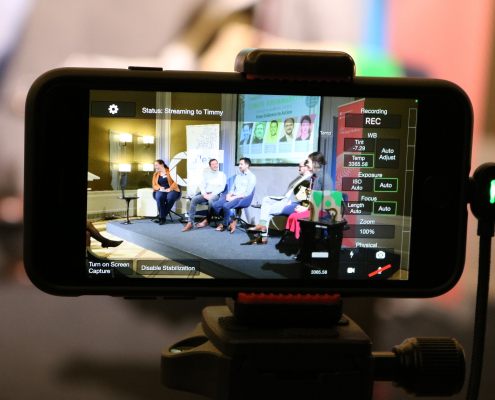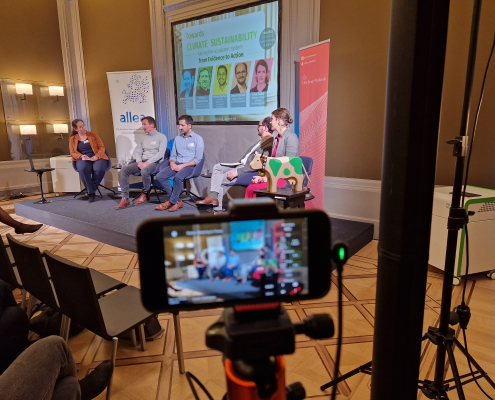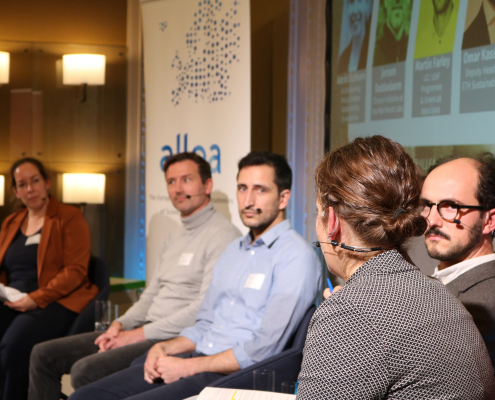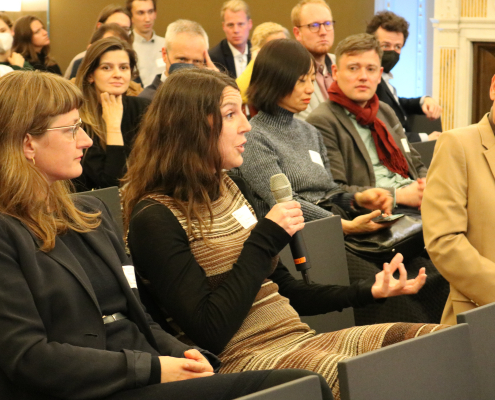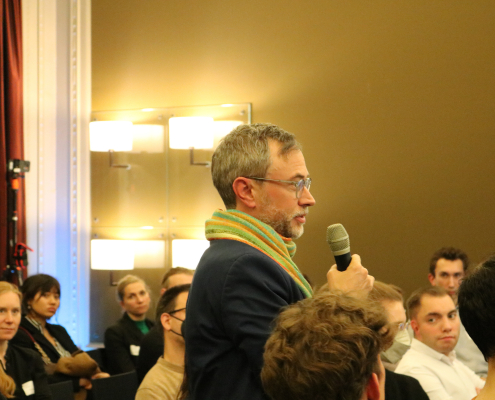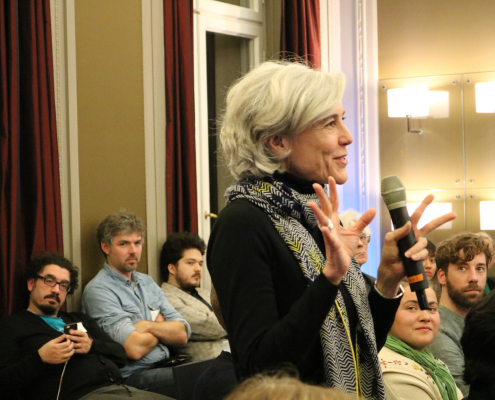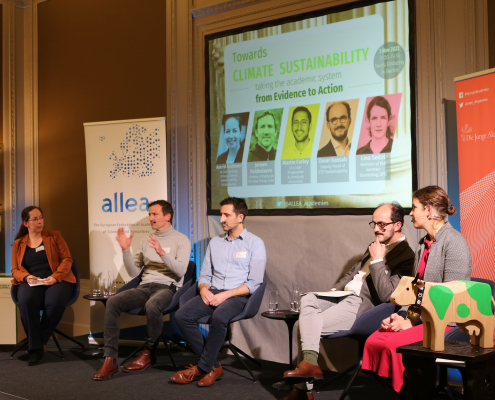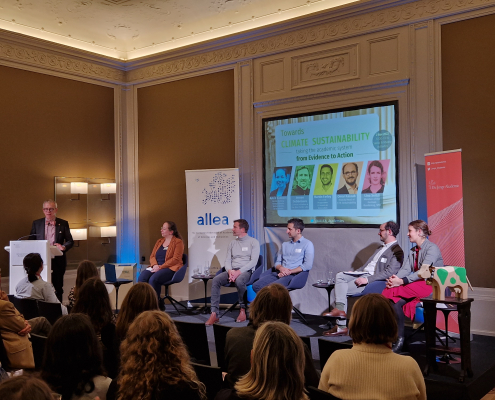Towards Climate Sustainability – ALLEA at the 2022
Berlin Science Week
How can the academic system become more climate sustainable? This is the main question we posed at this year’s Berlin Science Week in a joint event with the Swiss Embassy in Berlin and Die Junge Akademie on 2 November 2022.
Academic institutions have long played a key role in providing evidence on the climate crisis as well as potential mitigation strategies, but what is the academic system itself doing with this evidence? In light of the theme of this year’s Berlin Science Week, “Paradigm Shift: Co-Creating a Sustainable Now”, ALLEA partnered with the Swiss Embassy in Berlin and Die Junge Akademie to host the event ‘Towards Climate Sustainability – Taking the Academic System from Evidence to Action’. This event was held in hybrid format and was hosted at the Swiss Embassy on 2 November 2022.
Dr Paul Seger, Swiss Ambassador to Germany, delivered the welcome remarks highlighting the excellent collaboration with ALLEA and Die Junge Akademie on the lead up to the event. He noted that the Swiss Embassy is also taking concrete steps to calculate its own ecological footprint in the hopes to develop specific measures that will reduce its impact on the environment, emphasising that we must all start at our own doorsteps.
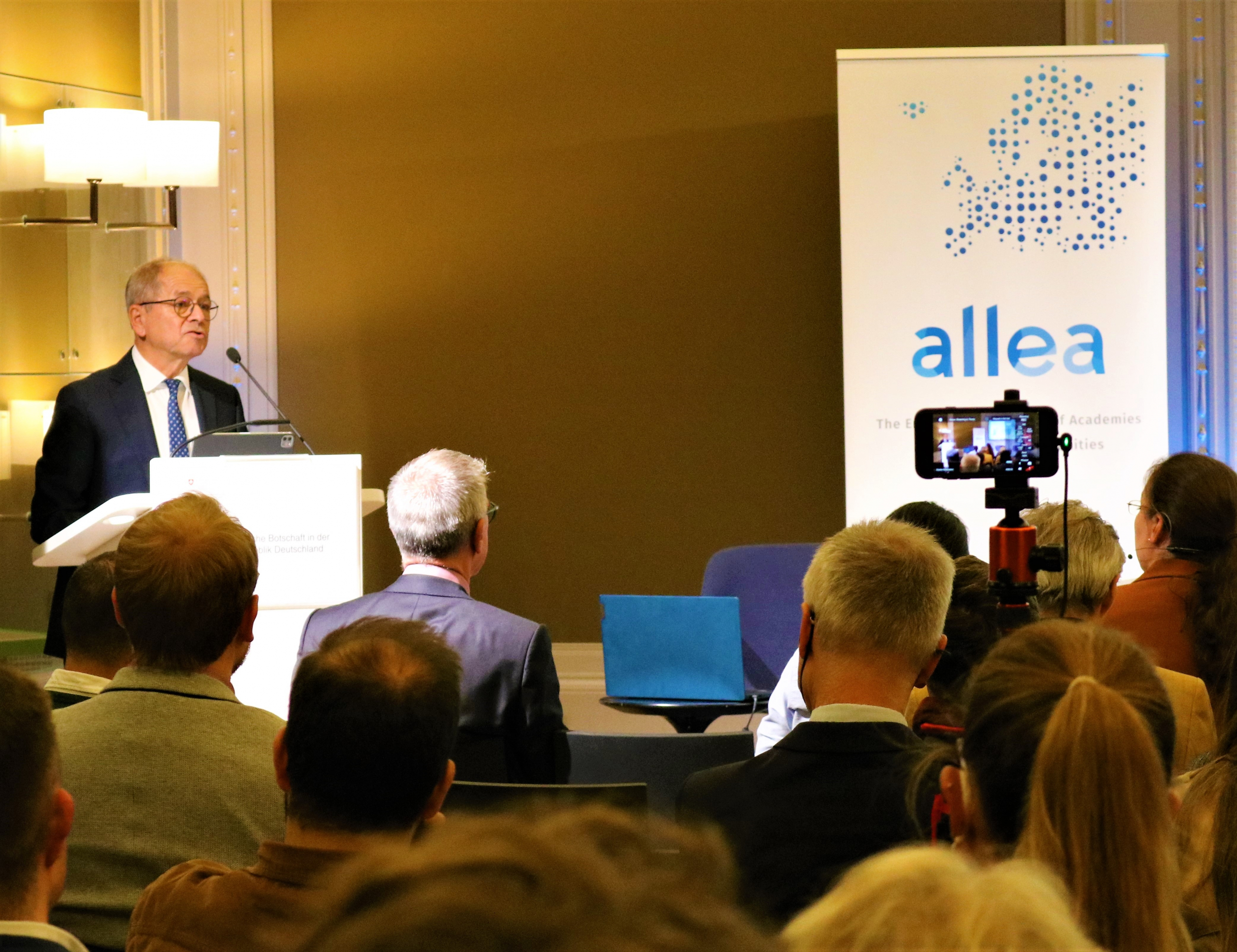
ALLEA President Antonio Loprieno delivers the introductory remarks at the Swiss Embasy in Berlin, 02 Nov 2022.
He later ceded the word to ALLEA President Antonio Loprieno, who also praised the fruitful collaboration with the Swiss Embassy on the ocassion of the Berlin Science Week, as was done in the year before. Professor Loprieno introduced the ALLEA Working Group on Climate Sustainability in the Academic System, led by Die Junge Akademie, which earlier this year published the report Towards Climate Sustainability of the Academic System in Europe and beyond. Professor Loprieno commended Die Junge Akademie for its active participation within ALLEA and for aptly leading the Working Group, stressing that Die Junge Akademie was the first national young acdemy to acquire membership into ALLEA, emphasising the importance of increasing collaboration with the european young academies.
Professor Loprieno concluded by highlighting that ALLEA is also preparing a number of measures to adopt the recommendations of the report to make ALLEA’s internal operations more climate sustainable, and that ALLEA will work with its member academies to enhance the report’s impact in the academy sector.
Climate Sustainability in the Academic System
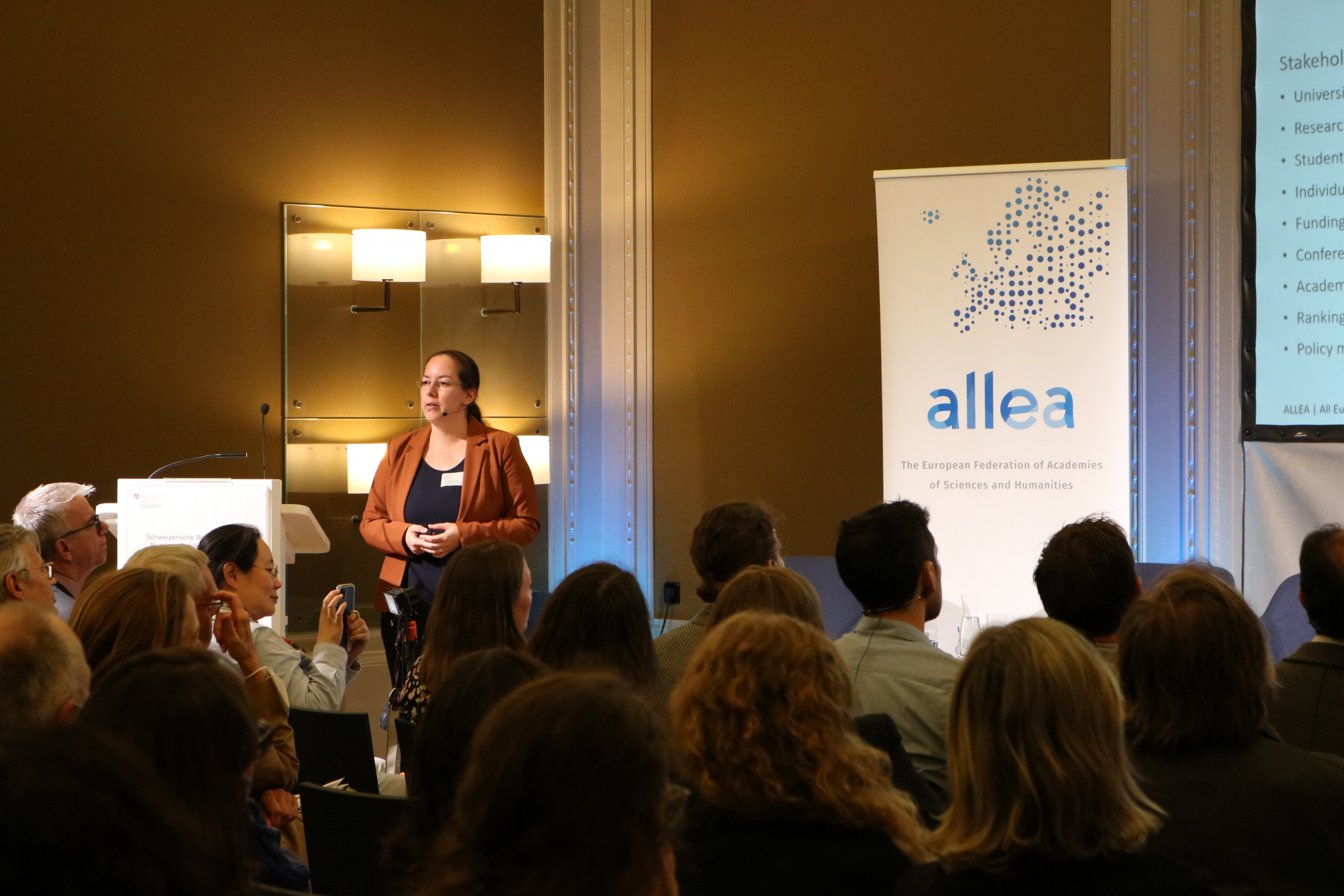
Professor Astrid Eichhorn delivers her presentation on the ALLEA report.
Professor Astrid Eichhorn, Chair of the ALLEA Working Group on Climate Sustainability in Academia, delivered a presentation on the major findings of the ALLEA report. Professor Eichhorn started her presentation by highlighting that, in the context of the climate crisis, the academic system is both a part of the solution, through research, education and evidence-based policy advice, and a part of the problem, through emissions from its own operations. She stressed three key messages from the report, namely that (1) the academic system is currently not climate sustainable, (2) individual stakeholders are taking first steps towards climate sustainability, (3) there are more options of action available right now for all stakeholders to become climate sustainable.
In her presentation, Professor Eichhorn expounded some of the data gathered in the ALLEA report, which demonstrate the negative climate impact that internal operations of various key stakeholders from the academic system can have, including universities, research institutes, individual academics, funding organisations, and conference organisers. She also featured some of the measures that some of these stakeholders are already taking to reduce their CO2 emissions, pointing out that actions should entail specific, actionable steps based on evidence, not just overarching principles and general guidelines.
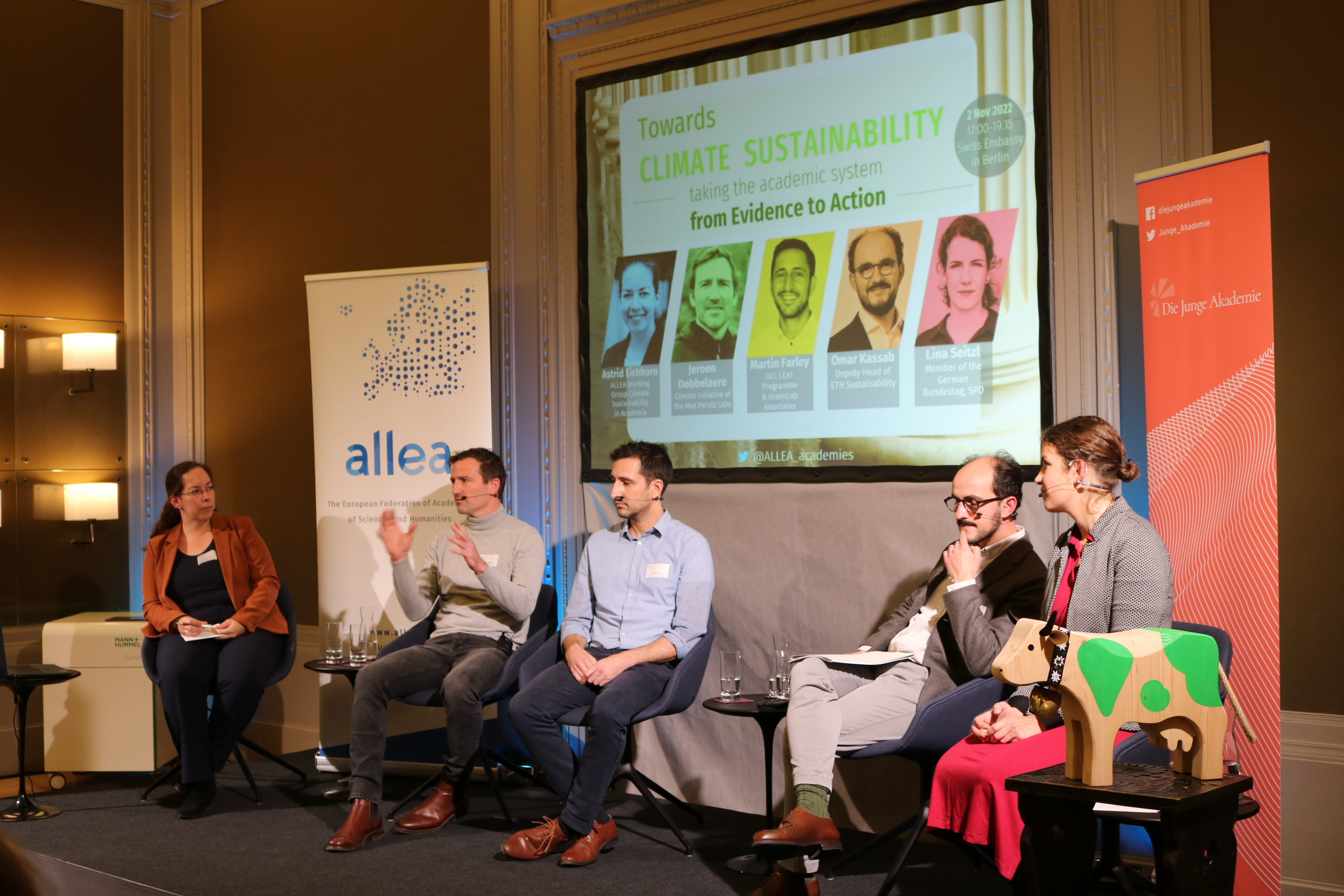
From left to right: Prof Astrid Eichhorn, Dr Jeroen Dobbelaere, Martin Farley, Dr Omar Kassab, and Dr Lina Seitzl.
Following her presentation, Professor Eichhorn was joined by four panellists to further the discussion, including Dr Jeroen Dobbelaere, Senior Scientist and Founder of the Climate Initiative at the Max Perutz Labs; Martin Farley, Manager of UCL’s LEAF Programme & Director of Green Lab Associates; Dr Omar Kassab, Lecturer and Deputy Head of ETH Sustainability; and Dr Lina Seitzl, Member of the German Parliament. The panelists delivered brief impulse talks recounting their successes and challenges in trying to advance more sustainable practices in their respective fields. This was followed by a discussion moderated by Professor Eichhorn and a Q&A session.
This event was hosted in a hybrid format in the context of the 2022 Berlin Science Week. You can watch the full livestream here.

